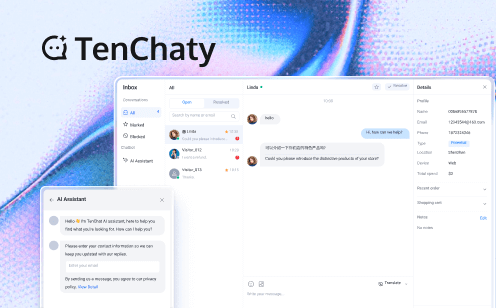
In today's digital world, software development is the backbone of innovation. Whether you're creating a mobile app, a web service, or a piece of hardware, the tools and technologies you use can make all the difference in the world. One such critical toolset is the Software Development Kit, commonly known as an SDK.
Understanding "what is SDK" is critical for both developers and businesses, as it can significantly impact the efficiency and success of software projects. This article will delve into what an SDK is, its common tools, advantages, essential elements, and how to effectively use it in your projects.
What is SDK?
An SDK, or Software Development Kit, is a collection of software tools, libraries, documentation, and code samples developers use to create applications for specific platforms or operating systems. Essentially, it is a toolkit that simplifies the development process by providing the necessary resources to build software without starting from scratch.
At its core, an SDK provides a set of pre-built components that handle common tasks, such as connecting to a network, accessing device hardware, or managing user authentication. These components are packaged in a way that developers can easily integrate them into their applications, saving time and reducing errors. For example, if you're building an Android app, the Android SDK provides the tools, libraries, and documentation needed to develop and test your app within the Android environment.
What are The Common Tools In SDK?
SDKs are packed with various tools that assist developers throughout the software development lifecycle. To better understand what is SDK mean in practice, here are some of the most common tools you might find in an SDK:
- API Libraries: Pre-written code libraries that offer access to specific features or services, allowing developers to integrate external functionalities into their applications.
- Debuggers: Tools that help identify and fix errors in code by allowing developers to inspect the execution of their programs.
- Compilers and Interpreters: Programs that translate code written in high-level programming languages into machine code or execute it directly.
- Profilers: Tools that analyze the performance of applications, including memory usage and execution times, to identify areas for optimization.
- Code Samples: Example code that demonstrates how to use SDK components and implement specific features.
- Deployment Tools: Tools that assist in deploying applications to their target platforms, including packaging and configuration utilities.
- Integrated Development Environment (IDE): A comprehensive software suite that includes a code editor, compiler, debugger, and other tools to streamline the development process.
- Code Libraries (Framework): Collections of reusable code sequences that simplify common programming tasks.
- Testing and Analytics Tools: Tools that provide insights into application performance during testing and production phases.
- Documentation: Guides and instructions that explain how to use the SDK’s components and features.
What are The Advantages of SDK?
Using an SDK offers numerous advantages, making it an essential tool for developers. Here are some of the major benefits:

1. Speed and Efficiency
SDKs give pre-built components and tools, allowing developers to avoid building code from scratch. This accelerates the development process, allowing teams to focus on creating unique features rather than reinventing the wheel.
2. Consistency and Reliability
Because the platform or service owners typically provide SDKs, they are thoroughly tested and maintained. This ensures that your components are reliable and consistent, reducing the likelihood of bugs or security vulnerabilities.
3. Enhanced Functionality
SDKs often give developers access to features and functionalities that would be difficult or impossible to implement independently. For instance, a mobile SDK may grant access to device-specific functions such as the camera, GPS, or accelerometer.
4. Cost-Effective
Using an SDK allows developers to reduce the time and resources needed to develop an application. This can lead to cost savings, especially for smaller development teams or projects with tight budgets.
5. Support and Community
Many popular SDKs have large communities of developers who contribute to forums, share tips, and provide support. This can be invaluable when encountering issues or when seeking advice on best practices.
In addition to these general benefits, some SDKs, like the Tencent RTC SDK, offer specialized features that can enhance specific aspects of your application. For instance, for real-time communication needs,TRTC SDK excels in providing high-quality real-time communication with minimal latency, making it ideal for integrating video and audio functionalities. Its advanced features, such as AI-powered noise cancellation and spatial audio, leverage the advantages of SDKs to deliver superior performance and a seamless user experience.
What Elements Should a Good SDK Have?
Not all SDKs are created equal. A good SDK should have the following elements to ensure that it is useful, easy to integrate, and effective:
1. Sample Code
Providing sample code helps developers quickly understand how to implement the SDK in their own projects. It can also serve as a reference for troubleshooting common issues.
2. Comprehensive Documentation
Clear, concise, and comprehensive documentation is crucial. Developers should be able to easily find information on how to use each SDK component, with examples and best practices provided.
3. Ease of Integration
The SDK should be easy to integrate into a variety of programming environments and projects. This includes providing support for various programming languages and platforms.
4. Regular Updates
Technology evolves rapidly, so a good SDK should be regularly updated to fix bugs, improve performance, and add new features that meet the latest standards.
5. Robust Testing Tools
Testing is a critical part of development. A good SDK should include tools allowing developers to test their applications thoroughly, ensuring they work correctly across different environments and devices.
6. Strong Security Measures
Given the increasing importance of cybersecurity, an SDK should incorporate strong security features to protect the application and its users from potential threats.
How to Use SDK?
Using an SDK typically involves several steps, depending on the SDK and the platform you're working with. Here's a general guide on how to use an SDK effectively:
1. Download and Install
The first step is downloading the SDK from the official website or platform provider. Installation instructions are usually provided to assist you in setting up the SDK in your development environment.
2. Read the Documentation
Before coding, read through the SDK documentation. This will give you a solid understanding of the available tools, libraries, and components and any setup or configuration required.
3. Explore Sample Code
Reviewing the sample code provided can help you learn how to apply the SDK in real-world circumstances. It's also a good starting point for building your own application.
4. Integrate with Your Project:
Once you're familiar with the SDK, you can start integrating its components into your project. This might involve adding libraries to your codebase, setting up APIs, or using the IDE tools to develop and test your application.
5. Test Thoroughly
Thoroughly test your application with the SDK's testing tools. This will help you catch any issues early and ensure your application performs well across different environments.
6. Keep Updated
Check the SDK regularly for updates and integrate them into your project as needed. This enables you to take advantage of new features, enhancements, and security patches.
Conclusion
Understanding what is SDK is crucial for anyone involved in software development. SDKs not only speed up development but also enhance functionality and reliability.
By choosing the right SDK and utilizing its resources effectively, developers can overcome challenges and create robust applications. Whether you're working on mobile apps, web services, or other projects, a solid grasp of SDKs will help you achieve better results and stay ahead in the fast-paced tech world.
FAQs
What is the difference between SDK and API?
An SDK is a comprehensive toolkit that includes everything needed to develop software, including APIs. To clarify what is an SDK vs API, an API, or Application Programming Interface, is a set of rules that allows different software components to communicate. While an SDK might include multiple APIs, an API on its own does not constitute a complete SDK.
What are the uses of SDK?
SDKs are used to create software for specific platforms like mobile apps, games, and web services. They provide tools and libraries that simplify coding, allow access to device features, and enable integration with other services. Developers use SDKs to build applications faster, add complex functionalities, and ensure their software works well on various devices and systems.
If you have any questions or need assistance online, our support team is always ready to help. Please feel free to Contact us or join us on Telegram or Discord. For technical problems, you can also get help directly from developers on Stack Overflow.


